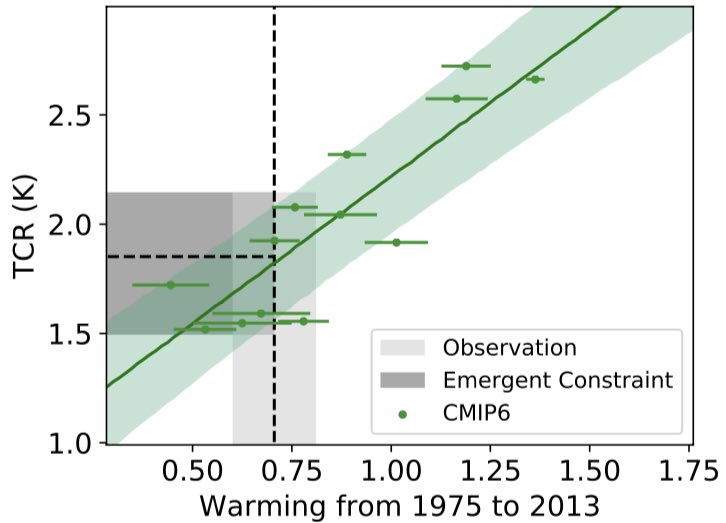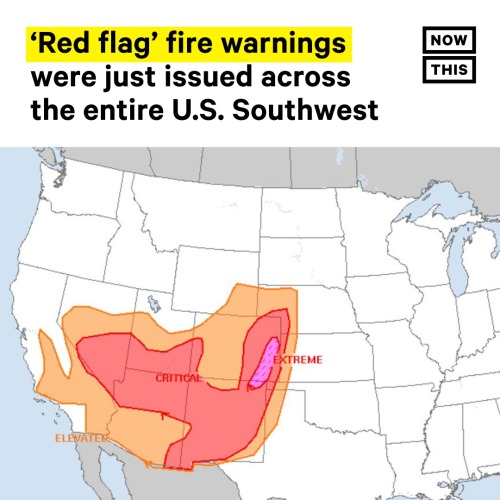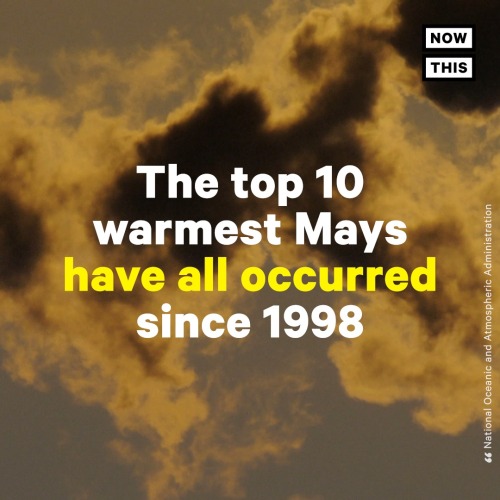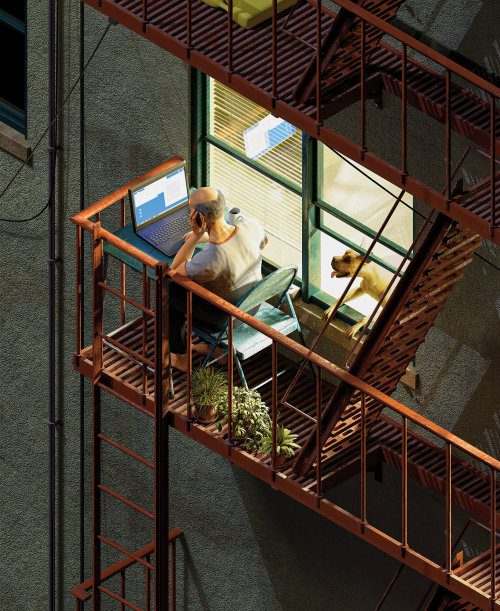Rolandt
Shared posts
Laura’s Coffee Shop – one of the last industrial coffee shops in the city
14jun2020
HOPL 4 papers, all open access. 1480 pages of programming language history!
SGAxe, “We then proceed to show an extraction of SGX private attestation keys from within SGX’s quoting enclave, as compiled and signed by Intel.”
CrossTalk, “[W]e present a new transient execution vulnerability, which Intel refers to as “Special Register Buffer Data Sampling” or SRBDS (CVE-2020-0543), enabling attacker-controlled code executing on one CPU core to leak sensitive data from victim software executing on a different core.”
The Rise and Fall of Commercial Smalltalk, by Allen Wirfs-Brock.
KataGo is one of the strongest open source Go bots available online, and on most common hardware should be moderately stronger than Leela Zero in most positions if tuned for performance.
Project:M36 implements a relational algebra engine as inspired by the writings of Chris Date.
Building a DNS server in Rust, by Emil Hernvall.
RT @Ad4EU: For today's 35th anniversary of the signature of the Schengen Agreement, a nerdy and nostalgic thread, also a bit too long (like…
|
mkalus
shared this story
from |
For today's 35th anniversary of the signature of the Schengen Agreement, a nerdy and nostalgic thread, also a bit too long (like a border queue?).
 ottocrat
on Sunday, June 14th, 2020 7:47am
ottocrat
on Sunday, June 14th, 2020 7:47am79 likes, 32 retweets
RT @estherschindler: RT @djbaskin: To make sure nobody shares a photo of you, put a GettyImages® watermark on your face mask. https://t.co/…
|
mkalus
shared this story
from |
RT @djbaskin: To make sure nobody shares a photo of you, put a GettyImages® watermark on your face mask. pic.twitter.com/FHvnUJOPCL

 ottocrat
on Sunday, June 14th, 2020 7:39pm
ottocrat
on Sunday, June 14th, 2020 7:39pm20 likes, 8 retweets
Twitter Favorites: [RM_Transit] Back on Transit and it feels good! @TransLink https://t.co/7ttzOIJGvh
Twitter Favorites: [rrehders] Thank you @joe_cressy @JohnTory #ActiveTO is the highlight of my #QuarentineLife #weekend https://t.co/4ooLwNvkSF
Thank you @joe_cressy @JohnTory #ActiveTO is the highlight of my #QuarentineLife #weekend pic.twitter.com/4ooLwNvkSF

Instapaper Liked: The Unpresident and the Unredeemed Promise
A Viet Cong guerrilla stands guard in the Mekong Delta, 1973 pic.twitter.com/CErNmgXqpw
|
mkalus
shared this story
from |
A Viet Cong guerrilla stands guard in the Mekong Delta, 1973 pic.twitter.com/CErNmgXqpw

456 likes, 90 retweets
Recommended on Medium: Dave Chappelle’s ‘8:46’ Packs 400 Years Into 30 Minutes
The comic’s voice is as eloquent as ever in his surprise Netflix special discussing race in America
Murkowski
- Murkowski
-
verb
- To express "concern" about something you have no intention of doing anything about.
Derived from Senator Lisa Murkowski who claimed she was "concerned" about about President Trumps behavior but still decided to vote against impeaching him. Four months later Trump was tear-gassing peaceful protesters.
Example usage: "Wow, Zuckerburg totally Murkowski'd on Trump's violent rhetoric."
See also: Duplicitious.
‘2040’
|
mkalus
shared this story
from |
After an absurd period with a real-life gloomy corona pandemic, lock-down and unrest, it was quite refreshing to see visions for a sustainable future in a new documentary ‘2040‘ (link to trailer). Its message, through the voice of Damon Gameau, is about hope and is based on rational thinking.
The video takes us to twenty years fast-forward to an imagined future. It makes good use of effects that communicate. For instance, Damon Gameau speaks with children about green and sustainable solutions and then makes the time travel to show what such a future may look like when climate change has stopped.
The documentary also makes use of some cool effects to demonstrate how things work. But it is mostly about a positive message on solutions rather than emphasising climate science and harmful consequences of climate change.
There is an interesting timing with the release of ‘2040’, and hopefully it will contribute to discussions about new solutions and how we can make use of both technology and new behaviour to improve our lives and the health of the planet. This is something that is already being discussed in Europe.
I thought the documentary made some interesting points about energy production, how to make agriculture more sustainable through mixed crops and good soil health, and how to use ocean resources. Another important point is the importance of empowering girls and women. However, I’m not in the position to say how successful the suggested solutions would be. I guess we may know answers in 2040.
Sensitive but unclassified: Part II
|
mkalus
shared this story
from |
The discussion and analysis of the latest round of climate models continues – but not always sensibly.
In a previous post, I discussed the preliminary results from the ongoing CMIP6 exercise – an international, multi-institutional, coordinated and massive suite of climate model simulations – and noted that they exhibited a wider range of equilibrium climate sensitivities (ECS) than in previous phases (CMIP5 and earlier) and wider than the assessed range based on observational constraints (of many kinds).
Since then, more model results have been added to the archive, and thanks to Mark Zelinka, we can see some of the analysis as it updates in real time.

By eye, it looks like there are two (or three) groups of models, one within the range of the assessed values (roughly 2 to 4.5ºC), one group with significantly higher values, and one institution/two models with a notably lower ECS. The question everyone has is whether this extended range is credible.
Mark and colleagues recent paper (Zelinka et al., 2020) demonstrated that a big part of the reason for the high sensitivities was in the Southern Ocean cloud feedback:
This is the key result from the Zelinka et al paper that just appeared. It shows that the big difference in sensitivities in some of the CMIP6 models is tied to the short wave low cloud feedbacks in the Southern Oceans (orange line). pic.twitter.com/RN9ply5kT8
— Gavin Schmidt (@ClimateOfGavin) January 4, 2020
Since my first post, there have been a number of papers have looked at the skill of these models to see whether there are some key observational data that might help in constraining the sensitivity (and by extension, the projections into the future). One set of papers has focused on the global mean trends from 1990 or so onward which is a period of stable or declining aerosol trends and which might therefore be a closer test of the models’ transient sensitivity to CO2 than earlier periods. Notably Tokarska et al. (2020) and Njisse et al. (2020) suggest that many of the high ECS group warm substantially faster than observed over this period and therefore should be downweighted in the constrained projections of the future.

Recently however, writing in Guardian, Jonathan Watts uses results from the UK’s new model (Williams et al., 2020) and a commentary from Tim Palmer to argue that that we nonetheless need to take these high sensitivities more seriously, and indeed that they may indicate that the assessed ECS range has been underestimating potential changes in the future. This is however flawed.
The Williams et al paper demonstrates that updates to the HadGEM3‐GC3.1 model developed by the UK’s Hadley Centre that affect the clouds and aerosols, increase the skill of that model in short-term initialized weather forecasts. This is fine, and indeed, consistent with increases in skill in the newer models across the board when they are compared to a very broad range of observations.
But it is a logical leap to go from an observation of increased skill in one metric to assuming that therefore the overall ECS in this particular model is more likely. To demonstrate that, one would need to show that this particular measure of skill was specifically related to ECS which has not been done (a point Palmer acknowledges). To put in another way, it may be that all models that do well on this task have a range of ECS values, and that the coincidence of this one model doing well and having a high ECS, was just that, a coincidence.
The Williams et al paper and Palmer commentary point to one particular feature of this model which is that the newer (higher ECS) versions have greater amounts of cloud liquid water at cold temperatures. For background, clouds can consist of either ice crystals, or liquid water droplets which have quite different radiative behaviours (liquid water clouds are generally more reflective), and knowing whether clouds are ice or water has been historically difficult to determine globally. In recent years however, satellite data from CloudSAT/CALIPSO has shown that more clouds have liquid water and at colder temperatures than was assumed before, and hence newer models have reflected that updated information.
This has an impact on ECS because in a warming world, one expects more cloud water to turn from ice to liquid, and since liquid clouds are more reflective, this is a damping feedback on overall climate warming. But if there is less cloud ice around, then there will be less of that ice to turn to water, and thus the magnitude of this damping effect will be smaller, and thus the overall sensitivity will be higher.
In discussions with colleagues over the last few months, this effect has been frequently brought up as a potential reason to think that the higher ECS values are therefore justified. But closer analysis does not necessarily support this. Some models for instance, have increased their cloud liquid water but have only had modest increases in climate sensitivity. Thus the relationship between higher CLW and ECS may be less strong than assumed above. It may be that other features in the clouds (such as the transition of different cloud types) might be playing a bigger role.
This assessment is obviously an important task for the authors of the IPCC AR6 report which is currently in it’s second-order draft. One (very modest) positive impact of the pandemic is that the deadline for papers to be accepted in order for them to be included in the final version of AR6 has been delayed to January 31st 2021, which will allow much of this new science to be published in time.
In the meantime, claims that climate sensitivity is much higher, or that worst cases scenarios need to be revised upwards, are premature.
References
- M.D. Zelinka, T.A. Myers, D.T. McCoy, S. Po‐Chedley, P.M. Caldwell, P. Ceppi, S.A. Klein, and K.E. Taylor, "Causes of Higher Climate Sensitivity in CMIP6 Models", Geophysical Research Letters, vol. 47, 2020. http://dx.doi.org/10.1029/2019GL085782
- K.B. Tokarska, M.B. Stolpe, S. Sippel, E.M. Fischer, C.J. Smith, F. Lehner, and R. Knutti, "Past warming trend constrains future warming in CMIP6 models", Science Advances, vol. 6, pp. eaaz9549, 2020. http://dx.doi.org/10.1126/sciadv.aaz9549
- F.J.M.M. Nijsse, P.M. Cox, and M.S. Williamson, "An emergent constraint on Transient Climate Response from simulated historical warming in CMIP6 models", 2020. http://dx.doi.org/10.5194/esd-2019-86
- K.D. Williams, A.J. Hewitt, and A. Bodas‐Salcedo, "Use of Short‐Range Forecasts to Evaluate Fast Physics Processes Relevant for Climate Sensitivity", Journal of Advances in Modeling Earth Systems, vol. 12, 2020. http://dx.doi.org/10.1029/2019MS001986
Microsoft investigating bug in Windows 10 update causing printer problems

The latest security update for Windows 10 includes a bug that is making it impossible for some users to print files.
Users on Reddit and other forums started reporting the issue as soon they installed the new update. The bug seems to be impacting several printer brands including HP, Canon, Panasonic, Brother and Ricoh.
Microsoft has since acknowledged the bug stating that after installing the update “certain printers may be unable to print. Print spooler may error or close unexpectedly when attempting to print and no output will come from affected printer.”
The tech giant notes that users may also encounter issues with the apps they are attempting to print from, and that they might receive an error from the app, or the app may close unexpectedly. Microsoft outlines that the issue might also affect software-based printers, like printing to PDF.
Microsoft says that it is working on a solution and promises to provide an update once more information is available. In the meantime, users who are experiencing the issue can uninstall the update until a fix is released.
Source: Microsoft Via: Engadget
The post Microsoft investigating bug in Windows 10 update causing printer problems appeared first on MobileSyrup.
Time Crimp
- Defn: Time Crimp, Temporal Crimp, or simply Crimp
-
A term that describes the compression of time during a crisis.
During times of crisis events unfold with a speed unthinkable outside a crisis.
- Vaccines for Covid-19 may be available in a year or two, as opposed to the normal development timeline of decades.
- Sweeping changes to zoning laws that would normally have been impossible, or at least taken years to get approved are done in a matter of days.
- "Defund the Police" went from being an obscure idea to Minneapolis policy.
- Entire market segments fast-forward through time.
- Massive shifts in public opinion.
Example usage:
"How long do you think it would have taken NASCAR to ban confederate flags outside the crimp?"
Related
Crimp Fatigue - The exhaustion that comes with trying to keep up with events during a time crimp.
My Naked Bicycles Gravel Bike
Twenty years ago I treated myself to a new bike on the occasion of turning 40, a Tamarack that was built just for me in Halifax. It was specced for loaded touring, with 26″ wheels, but with 853 tubing and a sloped Cinelli fork crown, just to keep things a little interesting. I’ve had many a pleasant ride on the bike, although the loaded touring never really came to pass as that was the year we had our first child.

Last year, since I was going to turn 60, I decided it was time to start thinking about another custom bike. At the same time, one of my bike related highlights of every year for much of the past decade has been my annual pilgrimage to the World Human Powered Speed Challenge, and it was there in 2008 where I first met the world’s fastest man, Sam Whittingham. Here is a picture of me grinning like an idiot while sitting in Sam’s bike.

I discovered that he was also a bike builder, and I thought that maybe someday I would buy one of his bikes.
Fast forward to last summer, when I visited his shop to get fitted, and to nail down some details about what I wanted.

Despite my retrogrouch tendencies, I decided that I would finally go for a modern design. Although carbon fiber is a wonderful material, I wanted the durability of a metal frame, and given that Sam is an expert builder in both steel and titanium, I went for Ti. I was also influenced by the fact that one of Sam’s bikes was featured in the videos that advertised Shimano’s brand new GRX component group, and the fact that he built and shipped the bike to Shimano within 48 hours of being contacted for a bike.
Naturally that meant that I wanted a gravel bike. Apparently advertising works. As an aside, this was also my first bike with brifters, through axles, and a carbon fork. I drew the line at Di2 and went for manual shifting.
Earlier this spring, Sam was renewing his website, and the timing was such that my bike ended up being both a show bike at the Vancouver bike show, and also one of the bikes featured on the gravel bike section of his site. Here is a beauty shot of my bike from his site.

At the end of March, this big box arrived.


All built up.

The stance is similar to the tamarack. Nothing too aggressive. I now have two handbuilt Canadian bikes. I am totally spoiled.

Also, can you tell that I like purple bikes?

Our family crest, or so I was told by my father.


This must be one of the most beautiful seatposts in the world.

Of course, my bell also had to be purple.

In keeping with the Canadian sourced theme of this bike, the only bag that I’ve put on the bike is a nigel from Porcelain Rocket. I really like this bag.

One issue that had to be worked out was that my GPS mount obstructed the bag opening.

This was addressed switching to the Garmin MTB mount. Obviously mounting the GPS directly on the very pretty painted stem was not an option 


I’ve now had about 1000 km on the bike, and it just glides. One thing that I asked for was to have the bike easy to ride no lands, and just like magic it has this combination of stability and responsiveness. Also, it was immediately comfortable, with no hand pain which was getting to be a bit of an issue with the Tamarack. Also, the GRX levers have nice flat tops on the hoods that help in this regard.
The only issue that I’ve had thus far was a misadventure with the tubeless tires due to my overinflating them.
In the past, 98% of my riding has been on asphalt. I’m determined to drive that percentage down, in part by weekly rides to Tommy Thompson Park.

Here a picture of the bike in a more typical urban environment. I must say that the 38 mm width tires help on all those potholes we have in Toronto.

The whole process of dealing with Sam and Andrea from start to finish was an absolute pleasure. If you are in the market for a bike that is unique and tailored to you, I cannot recommend Naked Bicycles more highly.
Variations on a Flow Way (Bach to Bach)
As someone who has been doing presentations on the physical form of Vancouver and how it has changed, I’ll admit I’m guilty of misrepresentation. A statistical sample of my images would show the city as seen on its sunny days, which, I think we might all agree, would not reflect its meteorological reality.
So here’s some balance: two views of the Beach Flow Way, one from June 5, the other from June 13, from the same view over Sunset Beach, with appropriate soundtracks from Bach.
A lot less bikes on rainy days (duh). But the same may be true here for cars.
Thanks to PT music director, Andrew Walsh.
COVID-19 Journal: Day 85
Three Months of Sheltering in Place
Ontario has only flattened the curve, and it has reached a plateau. I would have more confidence in the approach Canada's second largest (and therefore second greatest) province took if we've increased hospital resources if we need to accommodate a rise in cases, but I don't have a close enough read on that. So far the large outdoor gatherings that finger-wavers thought would lead to spikes have been benign, but I expect a second wave sometime in the colder months when we spend a larger amount of our day indoors. As long as we've developed runbooks and we've increased resources available for when (not if) the second wave hits, I'm not too worried about the strain on our health care system. Canada's neighbour to the south, that I'm not so sure about.
The Ontario government has split the province into two regions, which is to say The Greater Toronto Area (which I cal Ontario 1) and outside the GTA (Ontario 2). I largely support the move since the province is too big (and therefore too great) to administer as one unit in a situation like this, but I worry since I've in the region that isn't opening up as much as the other region. I've taken to calling it "loosening up" since that has been my feeling of the last two weeks. The reasons for that are:
- I get beer delivered rather than pick it up at the LCBO, a process which has made it a lot easier to drink every craft beer made in Ontario. If I was drinking only on weekends or on nights before a holiday, in order to cut down on the next day's brain fog. The pandemic changed that habit to about a beer a day. Only one on days before a workday, though. This is only to take the edge off, not to drown my sorrows.
The Lakeshore Boulevard Activeway is real, and it’s spectacular. #ActiveTO #BikeTO pic.twitter.com/LVTP4hNH25
— Richard Brynj ó l f s s o n (@sillygwailo) May 16, 2020
- The City of Toronto has opened some of its major streets as activeways for people wanting to get some exercise and maintain physical distance on weekends. I don't expect the Lakeshore Boulevard Activeway to be permanent, or at least not open to cyclists and whatnot in the colder months, but it's a big hit, and I hope they learn something from it for next year's warmer months, pandemic or no pandemic.
- Businesses re-opening and the possibility of increased ability to do things if we wear a face covering (which I'm on board with), even if it means no concerts or street festivals for a little while. I'm trying not to rationalize not being able to do things ("I didn't like [x] anyway"), but it has given me the opportunity to reflect on what I miss and what I don't miss.
We're getting there. The months of May and now June have passed faster than the months of March and April. I still have optimism about treatments and a vaccine, if only because the survival of the current system depends on it. As we've seen with the rise in support for the Black Lives Matter movement, it has long been obvious that the current system was not tenable for a very large portion of North American population. Due to the confluence of the pandemic, the resulting furloughs and layoffs, the slow, painful, agonizing death of a Black man at the hands (or, rather, the knee) of police caught on camera in Minneapolis, the resulting fall in popularity of an already-unpopular President, the overdue removal of monuments celebrating the lost effort to conserve slavery, the painful and welcome realization that Canada's institutions are not necessarily less racist than those of the United States, hopefully a new system (which still welcomes treatments and a vaccine for COVID-19) will take its place so both the United States and Canada can truly emerge better for having gone through this pandemic.
nowthisnews: May 2020 was the warmest May worldwide in recorded...





May 2020 was the warmest May worldwide in recorded history, going back all the way to 1850, NASA and the National Oceanic and Atmospheric Administration have confirmed.
The U.S. is experiencing a growing crisis of costly and destructive heat waves, wildfires, hurricanes, floods, and other extreme weather events exacerbated by the warming climate.
In 2019, President Trump repealed repealed the Clean Power Plan, Obama’s signature climate policy. It required states to meet targets for cutting greenhouse gas emissions from power plants.
Scientists say U.S. carbon emissions are continuing to rise—even during the COVID-19 lockdown—and human activity is to blame for the crisis.
An analysis of recent polls by E&E News found that Trump’s biggest electoral weakness is his handling of environmental issues. In fact, the gulf between Trump and Biden on climate is larger than differences on other issues like race relations, the economy, or health care.
follow @nowthisnews for daily news videos & more
inthenoosphere:The Inglehart–Welzel cultural map of the world...

The Inglehart–Welzel cultural map of the world (as seen here, as at 2017) is a scatter plot depicting societies on closely linked cultural values, grouped by worldviews, based on the World Values Survey. (via Wikipedia)
Preaching and Practicing Better Knowledge Work Habits
Moving classes online back in March triggered a new emphasis on the notion that the knowledge work we do is better and more easily done when you get it out of your head and somewhere in front of you where you can see it and improve it. This is a position I’ve come to only after a long process of fighting the notion in practice and gradually coming around to that notion and working to update and adapt my own work habits and practices.
Practicing what you preach is always much harder than the preaching part. As part of convincing myself to work harder on improving my practices, I went back and gathered up some of the key moments in the evolution of my thinking if only to shame myself into more practice and less preaching. It occurs to me that assembling these pieces in one place may be useful to others as well.
- Review – Sound advice on managing collaboration in teams – There’s a particular point in this piece about evidence that teams charged with creating new ideas always seem to revisit and replan their efforts somewhere near the midpoint of their work.
- Balancing Uniqueness and Uniformity in Knowledge Work – Most of what we have to say about work emphasizes uniformity and predictability. My Toyota Prius and yours should be substantially identical. Knowledge work is the opposite; the work in only valuable to the extent that it is new and different
- Managing the visibility of knowledge work – In a technology dominated economy, knowledge work is effectively invisible and that makes it harder to manage.
- Observable work – more on knowledge work visibility – They say you can’t manage it unless you measure it. If you can’t see it, how can you even measure it?
- The 80 IQ point move: knowledge work as craft – Stop thinking in terms of factories and start thinking in terms of artisan workshops
- Crumbling pyramids; knowledge work, leverage, and technology – Organizations built around knowledge work are also built on apprenticeship models both functionally and economically, Technology is making apprenticeship harder to manage and sustain.
- Doing and Managing Knowledge Work: TUG2010 Keynote Reflections – This was the place where I first started to talk about the notion of “observable work”
- Showing your work- intermediate knowledge work artifacts – We need to move beyond the notion of deliverables and make the processes of knowledge work visible throughout
- Bring back working papers – Paper intensive work practices threw off useful intermediate artifacts. Now we need to design those intermediate artifacts
- Effective Executives Are Design Thinkers – We tend to think of design as a specialty skill. I think it’s become an essential skill for anyone doing or leading knowledge work.
- Communications Divides Within the Organization; Look to Homer – Here’s some rumination on a distinction first proposed by a Jesuit priest named Walter Ong. His thesis was that writing gave us a new way thinking quite different from the oral thinking that represented much of early civilization.
The post Preaching and Practicing Better Knowledge Work Habits appeared first on McGee's Musings.
Saturday morning hanging out in the garden
First Steps with the Nova2
Last week I treated myself with an Boox Nova2 e-ink Android tablet, after reading about it in Robert Lender’s blog. (Meanwhile he has blogged his first impressions and experiences, in German) For most of the week the device sat on my desk, as I didn’t have time yet to take a proper look. Today I finally tried my hand at working with the device, so here are some first impressions.
The Nova2 is intended as a work device for me. To read non-fiction and annotate, as well as for handwritten notes and sketches. It therefore needs to be a seamless part of my workflow, meaning that things I write or annotate need to easily flow into other steps and the tools connected to those steps. Handwritten notes to be either exported as is, or transposed into text. Annotations exported and retrievable. The crucial thing for that is the ability to escape the specific silo a device is part of.
The Nova2 promises a handful of useful things:
- Syncing with various cloud tools (Evernote, Dropbox e.g.),
- E-mailing,
- Handwritten note taking,
- Multilingual text recognition of handwritten notes,
- Run a variety of e-reader apps as a generic Android tablet
- Optimise it for left handed use
My first impressions are only about trying those things out. Once I’ve done that, I can start looking at the workflow of the device itself, and the fit with the rest of my workflow.
It starts up slowly I feel.
It’s a Chinese product, so despite it being an Android device, there’s no preloaded Google stuff on it. That isn’t a big issue, on the contrary, but to use it as an e-reader I also wanted to have the Kindle app installed and that required the Google store. It took me several attempts to get it loaded, until I realised I had to register the device with Onyx first as well. That was a simple as giving it an e-mail address (a unique one as per usual), and typing in the confirmation code received on that mail address. I’m not sure what activating it with Onyx means. I’m not synchronising with the Onyx platform, but I’m not fully sure nothing gets send there. After that connecting it to a Google account and loading the Google store was easy. I also connected my Evernote account, which worked flawlessly.
I set the device up to push my handwritten notes to Evernote. That at first didn’t work. As it turns out this too was because the device wasn’t registered yet with Onyx. So after I got the Google store working, pushing to Evernote also worked.
I set up a new email address, that IMAPs to my mail server from the mail app on the device. This should mean I can also mail notes (to various other applications I’ve given an email address, like my Kindles, my blogs etc.)
Handwriting on devices I’ve never much liked, such as on an iPad, or using the Wacom A4 sized writing pad I use on my desk. Too often it feels like writing with your finger, it lacks fine motor control, and the feedback is usually slightly off, making writing awkward and the result illegible. My handwriting is already hard enough to read in the best of circumstances. This device handles it very well, I’m impressed. I’ve set it up for left handed writing, also meaning I moved the controls to the right hand side of the screen. Writing in the notes app that comes with the Nova2 is really good, and feels natural, also as the protective adhesive layer helps provide the right type of resistance like you have on paper. Hand writing in Evernote doesn’t work. It’s the ‘fat finger’ style of writing again, and the writing shows up on the screen a bit down and to the right of where the pen tip actually is, making it really hard to continue in the spot you left off a second or two earlier.
When you write in the device’s notes app, you have an ‘AI’ option to turn it into text. It will try to also interpret doodles, so you can’t really use it if you have notes and doodles on the same page. For just text at first I got very weird results, but then remembered I should set the language right. Once I did that, letting the writing recognition function know the notes are in Dutch, then it worked fine. Transmogrifying my handwriting into text is done online somewhere, so the device needs to be connected. I don’t know where my notes end up to be processed. I take notes in Dutch and English mostly, sometimes in German. My notes usually contain both Dutch and English at the same time. It seems that I can only select one language for the text recognition algorithm, so that isn’t optimal. That it is able to process Dutch at all is a step up from other apps and devices I tried.
I’ve installed several reading apps, next to the Onyx one itself: Kindle and Kobo. I keep my e-book library in Calibre (and I really should add my more recent Amazon purchases there), and it should therefore be possible to also load books into the native reader app. Likely that is the fastest one after all.
However, I haven’t succeeded yet in connecting the Nova2 to my laptop over USB. My filetransfer application sees the device as locked all the time, so I can’t access its storage. This is something I need to figure out, as this is the preferred route to move files between Calibre and the Nova2. It is possible to transfer files via wifi. If you go to the devices IP address in your local network (the Nova2 will tell you what its IP address is), then you get a html page allowing you to select files to upload. Doing that, I got some epubs and pdfs loaded on the Nova2 to read. [UPDATE plugging the Nova2 into the other USB port on my Mac, Calibre launches automatically as it immediately recognises the device. Android File Transfer does not see the device at all on that port, where it does see it on the first port but as locked. With Calibre working I can now manage the books on the Nova2 well]
Pluralistic: 13 Jun 2020
|
mkalus
shared this story
from |
Today's links
- Hank Green and me in conversation: July 10 for Minneapolis's Magers and Quinn books.
- Facebook Workplace can block employees from discussing unionization: Oops, they said the quiet part out loud.
- Secrets of a seventeen year old scraper: How 17 year old Avi Schiffmann built the web's leading covid case-tracker and Black Lives Matter protest-tracker.
- Facebook endorses Terra Nullius: Facebook's nudity filter blocks images of Aboriginal slavery.
- This day in history: 2005, 2010, 2015, 2019
- Colophon: Recent publications, upcoming appearances, current writing projects, current reading
Hank Green and me in conversation (permalink)
On July 7, Hank Green's publishing "A Beautifully Foolish Endeavor," the sequel to his outstanding 2018 debut "An Absolutely Remarkable Thing."
https://boingboing.net/2018/09/25/carls-against-humanity.html
That also happens to be the day that Tor is reissuing Little Brother and its sequel Homeland, in a new omnibus edition with an intro by Edward Snowden (!).
https://us.macmillan.com/books/9781250774583

I read "Endeavor" for a blurb and just loved it, so when Hank asked me if I'd do a virtual bookstore event on Jul 10 with Minneapolis's Magers and Quinn as part of his tour, of course I said yes!
https://ew.com/books/exclusive-hank-green-virtual-summer-book-tour/

Hank's virtual tour includes several other stops, many with his brother John Green, and also with Ashley C Ford and Roman Mars.
Facebook Workplace can block employees from discussing unionization (permalink)
Facebook makes a Slack competitor called "Facebook Workplace," with marquee customers like the government of Singapore, Walmart, Discovery Communications, Starbucks, and Campbell Soup Corporation.
On Wednesday, the company demonstrated a new suite of features for Workplace, including the ability to censor certain words or topics from the system. The example they chose? "Unionize."
https://theintercept.com/2020/06/11/facebook-workplace-unionize/
The company took the presentation down the next day and told Lee Fang that "this example was poorly chosen and should never have been used. The feature was only in early development and we’ve pulled any plans to roll it out while we think through next steps."
As Fang points out, Facebook has a curious approach to content moderation, maintaining that it cannot remove Donald Trump's calls for protesters to be shot, while equipping employers with tools to prevent employees from discussing collective bargaining.
This is particularly salient in an age of telework, where employees may no longer be gathering face to face (and indeed, many tech workplaces are proposing to continue telework after the pandemic is over).
In the time of the company town, firms used the pretense that they owned the houses workers slept in and the streets they walked to work as an excuse to ban labor organizing, saying that these activities were banned by the owners of this private property.
We've inverted this in the 21st century, where your employer can force you to convert your private home into a branch office of their company, and then order you to conduct yourself as though you were on their property.
Such an obviously inequitable demand won't work on its own: it needs an enforcement mechanism. Your employer isn't ready to send Pinkertons with fixed bayonets to your spare room (yet), but Facebook, as ever, is ready to be the robopinkerton, omnipresent and ever-vigilant.
Secrets of a seventeen year old scraper (permalink)
Even if you don't follow Avi Schiffmann, you're probably familiar with the 17-year-old's work: he's the creator of http://nCoV2019.live and http://2020Protests.com, the two leading tracking tools for covid cases and protests you can join.
In an interview with Tanya Basu for MIT Tech Review, Schiffmann describes how he taught himself to build these dashboards when he made a site that scraped his school's athletic stats portal and made it legible and useful.
When he decided to use those skills to build his covid tracker, he put a call out on some coding sites and attracted a dozen high-school aged volunteers, many in Asia, who helped write the scrapers that pull in the data for http://nCoV2019.live.
As the project grew more sophisticated and then begat his protest tracker, he used online tutorials and communities to acquire the knowledge he needed to overcome new challenges ("The thing is, you can learn anything online").
Since the first days of the maker movement, it's been clear that the ability to search and discuss is the major thing that differentiates "makers" from earlier generations of tinkerers, like the radio and electronics hobbyists that kept Modern Mechanix in business.
Schiffmann is a self-confessed "bad student" with a 1.7GPA and 60% attendance, which he attributes to his consuming passion for his programming projects. It's a testament to how much of pedagogy turns on getting out of the student's way when their passions are inflamed.
I read my first novel – Alice in Wonderland – one day in second grade. I pulled it off the shelf before class started and sat on the carpet to read it, and my teacher, Bev Panikkar, saw that I was engrossed in it and didn't call me to class.
She let me sit there for two consecutive school days while I read, and while I was kicking off a lifelong passion for literature (also, I married a woman called Alice!).
As interesting as the pedagogical and makerish implications of Schiffmann's story, I'm also fascinated by the role that scraping plays in making these essential information resources.
Scraping went from a honorable practice (the core of Google Search, for example) to a potential felony over the course of decades, as companies that made their fortunes scraping others turned around and sued, banned and blocked anyone who returned the favor.
But scraping is one of the key tools for attaining Adversarial Interoperability, which once kept tech dynamic and responsive to users, and the absence of which has contributed greatly to its stagnation and corruption.
Facebook endorses Terra Nullius (permalink)
The people who perpetrated genocidal settler colonialism needed a way to square their slaughter and theft with their conception of themselves as moral actors. They settled their consciences with the doctrine of "terra nullius."
https://locusmag.com/2019/03/cory-doctorow-terra-nullius/
Terra nullius – empty land – is a variation on Locke's labor theory of value, the idea that the only thing you can be said to truly own is your body and its labor, and when you blend your labor with natural resources, the finished product is yours.
Locke is a key grifter thinkfluencer, because at the core of Locke's theory is the idea that there are natural things that no one else is using for you to come along and pick up and blend with your labor to turn into property.
Inevitably "stuff no one is using" turns out to be a fancy way of saying "stuff that is widely used by people I consider to be subhuman."
So when settler colonialists arrived in Australia, they declared it to be empty land, and the people who'd lived there for as long as behaviorally modern humans have existed to be non-persons.
This relegation to subhuman status created the conditions for genocide, enslavement, torture, rape, and more.
The Australian establishment's means of escaping this legacy is to simply pretend it doesn't exist.
That's why Australian PM (and noted piece of shit) Scott Morrison's response to the Black Lives Matter protests in Australia by flatly stating that there was "no slavery in Australia" and accusing protesters of not being "honest about our history."
Morrison's claims are easily refuted. For example, the State Library of Western Australia has an 1896 image of enslaved aboriginal people in neck-chains, outside Roebourne Gaol. This image was posted to Facebook as part of the discourse of Australia's history of slavery.
But it was immediately removed by Facebook's nudity filter, a fully automated machine learning system that enforces the system's "community standards." The user who posted it had his account restricted in punishment for violating these standards.
Facebook removed 39.5m "nudity" images in the first quarter of this year. At that rate, you won't be surprised to learn that more than 99% of these removals were fully automated and untouched by human hands.
It's true that FB is largely free from nudity, and this fact is often cited by advocates of other kinds of filtering – say, copyright filtering – as evidence that FB COULD block the content they object to, but it chooses not to.
In a sense, those critics are correct. FB has demonstrated that it is willing to accept immense collateral damage from its filtering – whether that's censoring survivors of terrorist atrocities in the name of filtering out "extremist content."
Or blocking images that prove the genocidal history of a nation at a moment when its leadership is denying that history even exists.
FB doesn't intend to block this speech, but it knows this "overblocking" is inevitable when it turns over moderation to automated filters.
By its actions, FB is telling us that this is an acceptable price to pay.
But that doesn't mean that filtering on broader criteria – harassment, profanity, libel, copyright infringement – is just more of the same. These categories are FAR broader than "nudity."
What's more, the consequences of overblocking are far more damaging to the purpose these filters are supposed to serve. A copyright filter that is supposed to protect artists and then goes on to censor artistic work that's mistaken for infringement harms artists.
An "extremist content" filter that is supposed to protect us from terrorist violence and then goes on to block the images and stories of survivors of that violence literally adds insult to injury.
An anti-harassment filter that blocks the discussions of harassment targets who describe the words used to harass them helps harassers, not their victims.
FB got 2.5 million takedown appeals in Q1/2020, and restored 613,000 pieces of content. Even if you accept the dubious claim that FB's human checkers got it right, that's 613,000 acts of illegitimate censorship.
As for the photo of the enslaved aboriginal people, it was restored too — after The Guardian's Josh Taylor asked FB embarrassing questions about the removal.
"Getting reporters to take up your cause" is not a scalable solution to errors in mass automated filtering.
FB can't moderate at scale. No one can. Adding filters "works" in the sense that you can block most "bad content" if you don't care how much good content gets blocked by mistake alongside of it.
And the fallout from this overblocking is not evenly distributed. Not only are some disfavored minorities (sex workers, queer people, people of color) more likely to have their discussions censored.
They're also less likely to have access to reporters who'll embarrass FB and it into taking action.
The answer isn't to lard FB with more censorship duties for it to fuck up even worse – it's to cut FB down to size, to a scale where communities can set and enforce norms.
Because the problem with FB isn't merely that Mark Zuckerberg is uniquely unsuited to making decisions about the social lives and political discourse of 2.6 billion people.
It's that no one is capable of doing that job. That job should not exist.
PS: Scott Morrisson retracted his no-slavery claim:
PPS: if you try to post about this to FB, your post will be blocked for "nudity".
https://twitter.com/AbyDarling/status/1271546216501768192
This day in history (permalink)
#15yrsago Tiny cartoon penis disqualifies Ulysses comic from iPad store https://web.archive.org/web/20100613002625/http://www.thebigmoney.com/blogs/app-economy/2010/06/09/joyce-s-ulysses-banned-again-apple-not-government?page=full
#15yrsago Using Wikipedia entry as a pandemic-prevention clearinghouse https://web.archive.org/web/20060104174750/https://promedmail.org/pls/promed/f?p=2400:1001:937086236041052094::NO::F2400_P1001_BACK_PAGE,F2400_P1001_PUB_MAIL_ID:1000,29165
#10yrago Peer review provides £209,976,000 public subsidy to commercial publishers https://nogoodreason.typepad.co.uk/no_good_reason/2010/06/the-return-on-peer-review.html
#5yrago Man who channels alien from the future bombards Tumblr GIF artists with takedown notices https://brucesterling.tumblr.com/post/121416463258/annoyed-gif-artists-pestered-by-lunatic
#5yrsago Unicorn on a Roll: more comics in the tradition of Calvin and Hobbes https://boingboing.net/2015/06/13/unicorn-on-a-roll-more-comics.html
#5yrsago Man Who Sold the Moon wins the Sturgeon Award! https://boingboing.net/2015/06/13/man-who-sold-the-moon-wins-the.html
#5yrsago Terry Pratchett's daughter says she will not write or authorize more Discworld books https://www.theguardian.com/books/2015/jun/12/terry-pratchett-daughter-fans-shepherds-crown-last-discworld-novel
#5yrsago US Government Office of Personnel Management has a second, much worse breach https://www.techdirt.com/articles/20150612/16334231330/second-opm-hack-revealed-even-worse-than-first.shtml
#1yrago Facebook execs are worried that Zuck's emails show he never took his FTC privacy obligations seriously https://www.wsj.com/articles/facebook-worries-emails-could-show-zuckerberg-knew-of-questionable-privacy-practices-11560353829
#1yrago Hong Kong's #612strike protest movement: a million strong, leaderless, wireless and smart as hell https://www.scmp.com/news/hong-kong/politics/article/3014260/hong-kongs-young-protesters-have-learned-lessons-past-they
#1yrago Couture fashion company Vetements is selling an unauthorized €800 Pirate Bay hoodie https://torrentfreak.com/red-hot-vetements-fashion-brand-is-selling-a-845-pirate-bay-hoodie/
#1yrago In Alabama, it's traditional for sheriffs who lose their elections to steal and waste money, destroy public property https://www.propublica.org/article/alabama-sheriffs-undermine-successors-after-losing-reelection
#1yrago After American juvenile offenders are released, they can be re-imprisoned for failing to make restitution payments https://www.themarshallproject.org/2019/06/11/punishing-kids-with-years-of-debt
#1yrago Majority of American millionaires support a wealth tax on American millionaires https://www.commondreams.org/news/2019/06/12/even-1-know-they-arent-paying-their-fair-share-new-poll-shows-60-millionaires
Colophon (permalink)
Today's top sources: Naked Capitalism (https://nakedcapitalism.com/), Slashdot (https://slashdot.org/).
Currently writing:
- My next novel, "The Lost Cause," a post-GND novel about truth and reconciliation. Friday's progress: 505 words (26982 total).
-
A short story, "Making Hay," for MIT Tech Review. Friday's progress: 334 words (657 total)
Currently reading: Adventures of a Dwergish Girl, Daniel Pinkwater
Latest podcast: How Big Tech Monopolies Distort Our Public Discourse https://craphound.com/podcast/2020/06/01/how-big-tech-monopolies-distort-our-public-discourse/
Upcoming appearances:
- Keynote, Transparency By Design, Jun 17, https://www.eventbrite.co.uk/e/transparency-by-design-tickets-103925443800#
-
Discussion with Nnedi Okorafor, Torcon, June 14 https://www.torforgeblog.com/torcon-2020/
-
In Conversation with Hank Green, Jul 10, https://www.magersandquinn.com/product_info?isbn_id=26578312&products;_id=163359157
Upcoming books: "Poesy the Monster Slayer" (Jul 2020), a picture book about monsters, bedtime, gender, and kicking ass. Pre-order here: https://us.macmillan.com/books/9781626723627. Get a personalized, signed copy here: https://www.darkdel.com/store/p1562/_Poesy_the_Monster_Slayer.html.
"Attack Surface": The third Little Brother book, Oct 20, 2020. https://us.macmillan.com/books/9781250757531
"Little Brother/Homeland": A reissue omnibus edition with a new introduction by Edward Snowden: https://us.macmillan.com/books/9781250774583; personalized/signed copies here: https://www.darkdel.com/store/p1750/July%3A__Little_Brother_%26_Homeland.html

This work licensed under a Creative Commons Attribution 4.0 license. That means you can use it any way you like, including commerically, provided that you attribute it to me, Cory Doctorow, and include a link to pluralistic.net.
https://creativecommons.org/licenses/by/4.0/
Quotations and images are not included in this license; they are included either under a limitation or exception to copyright, or on the basis of a separate license. Please exercise caution.
How to get Pluralistic:
Blog (no ads, tracking, or data-collection):
Newsletter (no ads, tracking, or data-collection):
https://pluralistic.net/plura-list
Mastodon (no ads, tracking, or data-collection):
https://mamot.fr/web/accounts/303320
Twitter (mass-scale, unrestricted, third-party surveillance and advertising):
Tumblr (mass-scale, unrestricted, third-party surveillance and advertising):
https://mostlysignssomeportents.tumblr.com/tagged/pluralistic
When life gives you SARS, you make sarsaparilla -Joey "Accordion Guy" DeVilla
RT @joncstone: love that this guy couldn't bring himself to leave his wehrmacht hemet at home for the 'we aren't nazis' stunt https://t.co/…
|
mkalus
shared this story
from |
love that this guy couldn't bring himself to leave his wehrmacht hemet at home for the 'we aren't nazis' stunt twitter.com/beardedjourno/… pic.twitter.com/3ZDNrLagqR
An ‘All Lives Matter’ protest is currently taking place around the Cenotaph. pic.twitter.com/fLNXsUHQ3y

548 likes, 213 retweets

 ottocrat
on Saturday, June 13th, 2020 3:01pm
ottocrat
on Saturday, June 13th, 2020 3:01pm709 likes, 279 retweets
Stanley Park and Accessibility: The Bigger Question
As the debate heats up and polarizes on how Stanley Park should allocate road space while accommodating everyone in a time of pandemic, here’s the bigger question:
Does access for the disabled and seniors require ‘Full Motordom’ – the default 20th-century road-and-parking design that gave us auto-dependence?
Here are several examples of Motordom design from the park, including this one:
The roads are designed almost exclusively for driving – banked and angled curves, no stop signs, unaligned crosswalks, limited sidewalks. Of course, no bike lanes.
Some park commissioners and supporters have a new line of defense to prevent change: Motordom is necessary to provide access for the disabled and seniors (who are presumed to be car-dependent), while at the same time implying or accusing those who desire a more balanced approach of demanding a car-fee Stanley Park. They’re not and it isn’t.
RT @jbillinson: Fox News fell for a Monty Python joke on Reddit lmao pic.twitter.com/Yo34yuQvlD
|
mkalus
shared this story
from |
Fox News fell for a Monty Python joke on Reddit lmao pic.twitter.com/Yo34yuQvlD

 wtyppod
on Saturday, June 13th, 2020 8:23pm
wtyppod
on Saturday, June 13th, 2020 8:23pm6360 likes, 1822 retweets
Stanley Park and Accessibility: The Bigger Question
|
mkalus
shared this story
from |
|
| The Parks Board should go all in. If it’s about access for the old and disabled maybe we should open up all the trail in the park to car. One way only of course. Bridal would be wide enough already and for the rest? Nothing a bit of clear cutting couldn’t fix. /s |
As the debate heats up and polarizes on how Stanley Park should allocate space while accommodating everyone in a time of pandemic, here’s the bigger question:
Does access for the disabled and seniors require ‘Full Motordom’ – the default 20th-century road-and-parking design that gave us auto-dependence?
Here are several examples of Motordom design from the park, including this one:
The roads are designed almost exclusively for driving – banked and angled curves, no stop signs, unaligned crosswalks, limited sidewalks. Of course, no bike lanes.
Cyclists on the Lagoon Drive entrance to the park, heading for the tennis courts, are confronted with a one-way road system that makes no accommodation for their intentions. You want to go left, but legally you can’t. It’s assumed that, like drivers, you will go kilometres out of your way to reach your destination – or else use the ped paths to the annoyance of walkers.
Some park commissioners and supporters have a new line of defense to prevent change: Motordom is necessary to provide access for the disabled and seniors (who are presumed to be car-dependent), while at the same time implying or accusing those who desire a more balanced approach of demanding a car-fee Stanley Park. They’re not and it isn’t.
Eating on the Street: The Patio Expands
Until a few years ago, space beyond the curb was for parking, picking stuff up, getting on a bus and dropping stuff off.
Curb space was for accessibility by vehicle. Very valuable space.
So logically, there was no place for uses that reduced accessibility – especially when the intent was just the opposite, to get people to linger.
Photo by Cal
Because of the pandemic, we’ve quickly made space for Non-Motordom users who need more space. But now there is less parking and vehicle accessibility.
Is that a fair trade-off? Only if there’s no alternative for those with no alternative.
And there is: the space beyond the patio. As part of a slow street, double-parking and double-sitting is the expected way. If on slow streets, pedestrians can walk down the middle of the street, cars can stop and linger for a bit too.
This way of thinking about a street violates the understanding we have had of Motordom, where the vehicle retains dominance. Those who wish to maintain Motordom are using marginalization – ableism, ageism – as a defense, assuming that the needs of seniors and the disabled can only be respected with the full apparatus of a 20th-century road system.
Where the space beyond the curb is for cars. And that’s so not so.

























